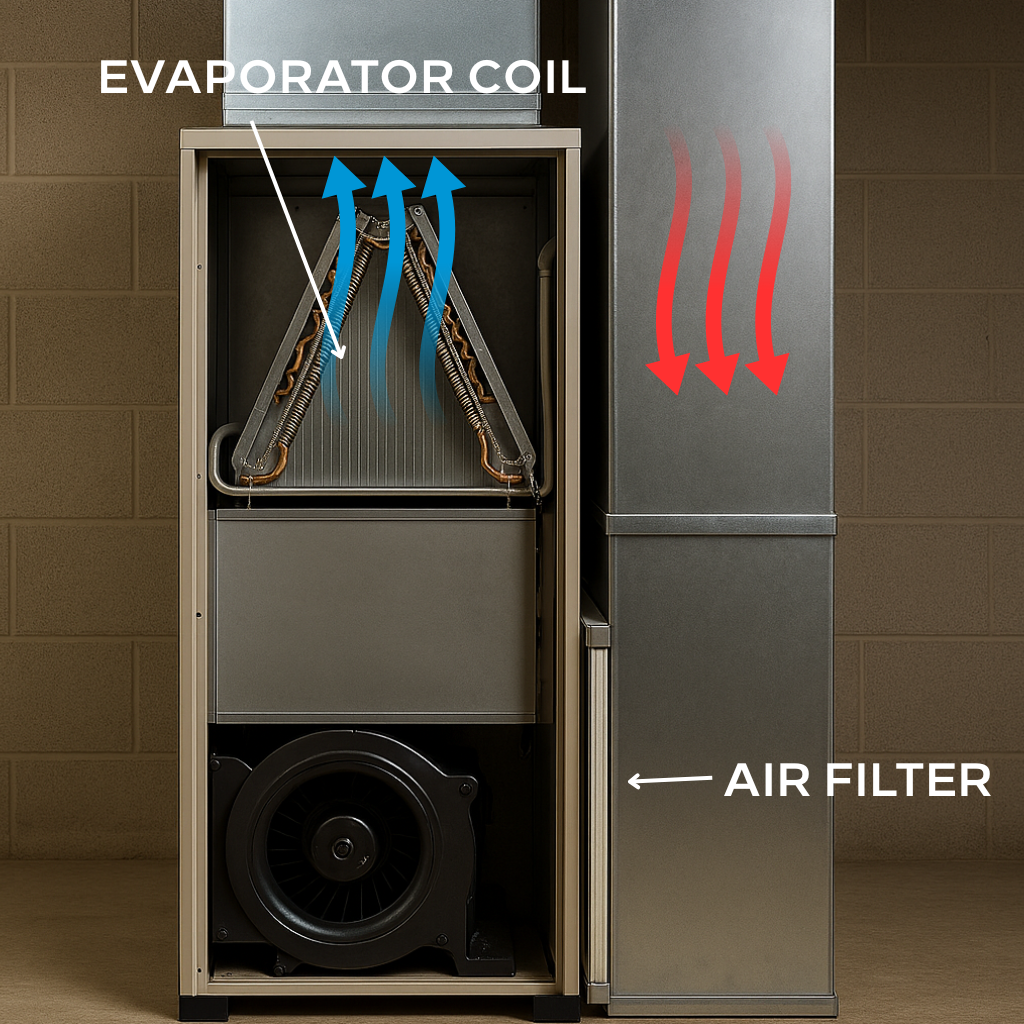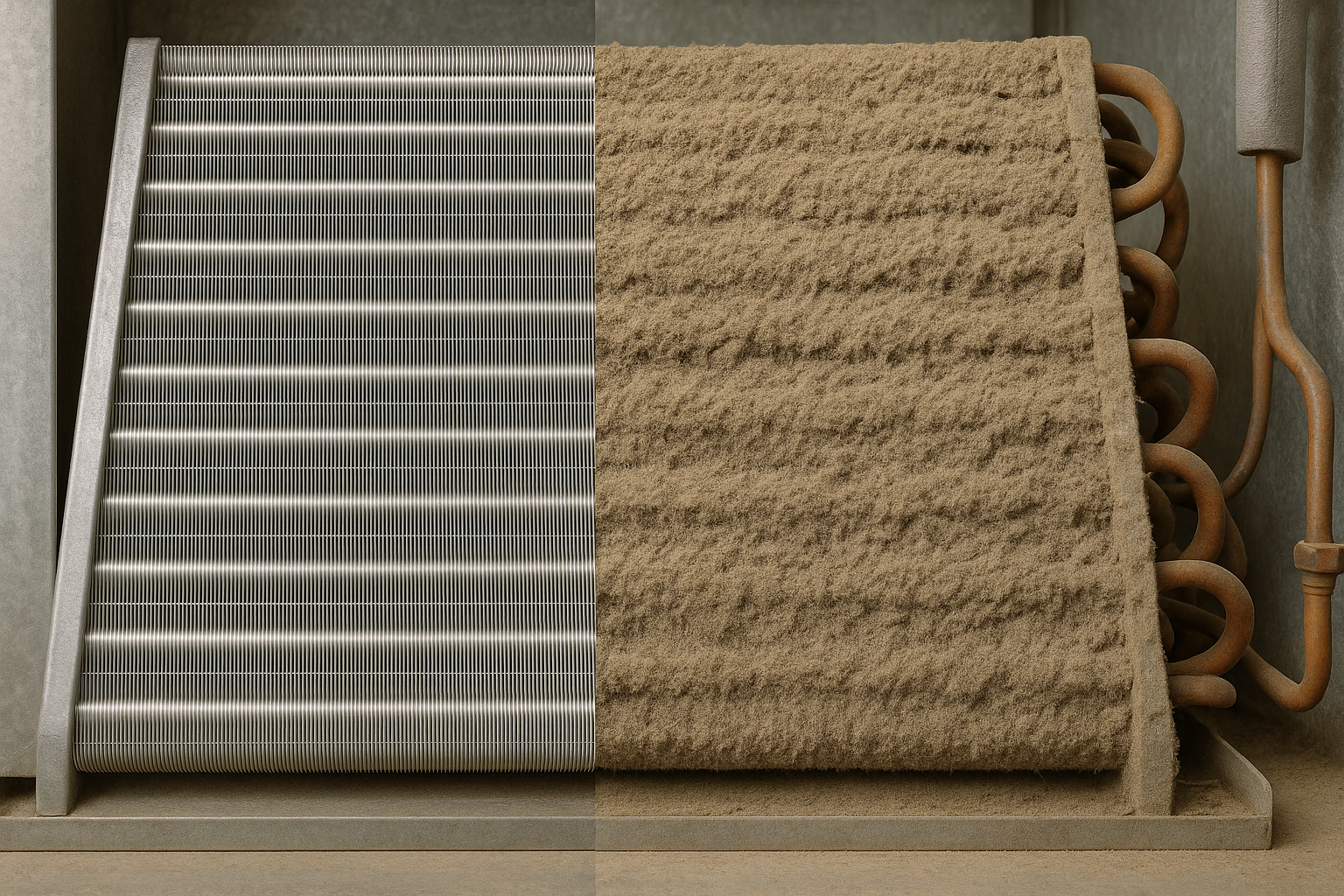Why a Clean Evaporator Coil Is Critical for Summer Cooling Efficiency
When the summer heat sets in, your home’s air conditioning system becomes essential. But behind the scenes, there’s a crucial component that often gets overlooked: the evaporator coil. Located inside your HVAC system, this coil is responsible for absorbing heat from the air inside your home. When it’s clean, it does its job efficiently. When it’s dirty, everything suffers — your comfort, your energy bills, and your system’s lifespan.
What Happens When Your Coil Gets Dirty?
Dust, pet hair, pollen, and other airborne debris can sneak past a clogged or overdue air filter and settle on your evaporator coil. Over time, this buildup creates a layer of grime that insulates the coil’s surface — exactly the opposite of what it should do. This leads to:
- Reduced Heat Transfer: A dirty coil can’t absorb heat effectively, forcing your system to work harder and longer to cool your home.
- Decreased Airflow: As debris builds up, it can choke off air circulation, resulting in uneven temperatures and reduced indoor comfort.
- Increased Energy Use: A struggling system uses more energy, translating to higher utility bills.
- Potential for System Damage: Over time, poor airflow and increased strain can lead to frozen coils, compressor issues, or premature failure.
The Simple Fix: Replace Your Air Filter
The best way to keep your evaporator coil clean is also the simplest: regularly replace your HVAC air filter. A fresh, properly sized filter traps airborne contaminants before they reach your coil, protecting your system and improving your indoor air quality.
At DiscountFilters.com, we carry a wide selection of high-quality pleated air filters that provide superior filtration and airflow. Whether you’re looking for basic dust protection or advanced allergen control, we have options that fit your system and your budget.
Key Benefits of a Clean Coil and Fresh Filter:
- ✅ Improved Cooling Efficiency – Your AC cools faster and more evenly.
- ✅ Lower Energy Bills – Less strain on your system means lower operating costs.
- ✅ Extended Equipment Life – Clean components reduce wear and tear.
- ✅ Better Air Quality – Less dust, mold, and pollutants circulating through your home.
Final Tip: Check Your Filter Monthly
Most filters should be replaced every 1–3 months, depending on your system, lifestyle, and filter type. If it looks dirty — it is. And if you can’t remember the last time you replaced it, it’s probably overdue.


